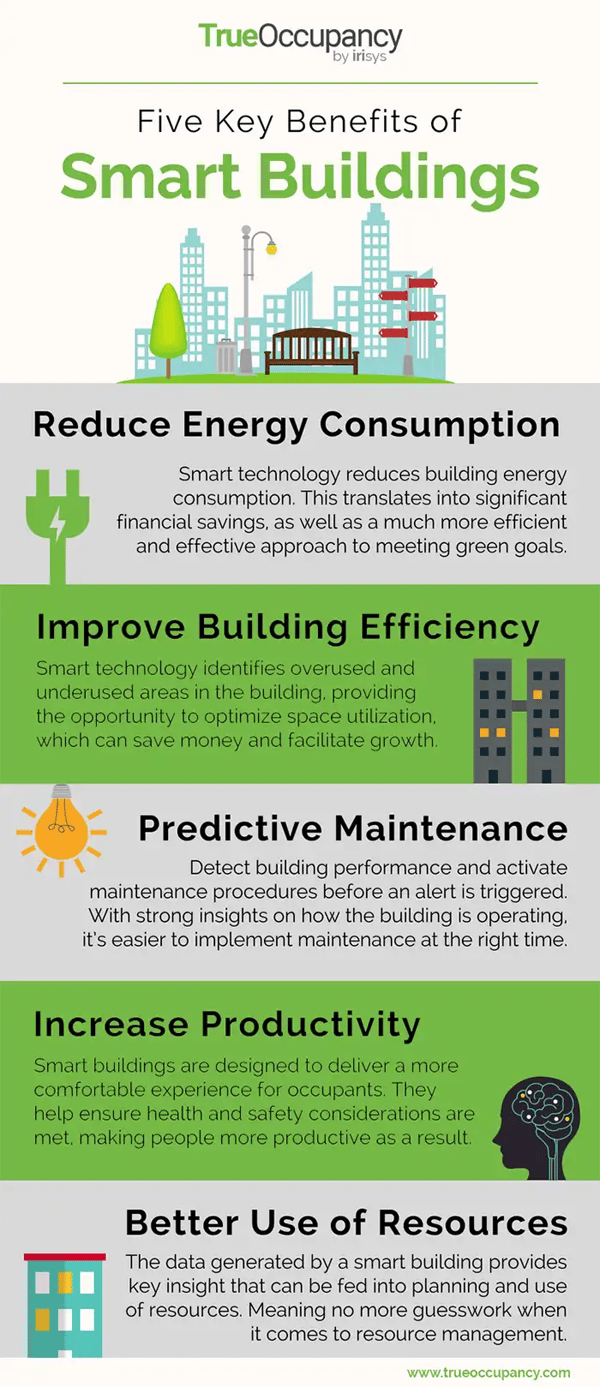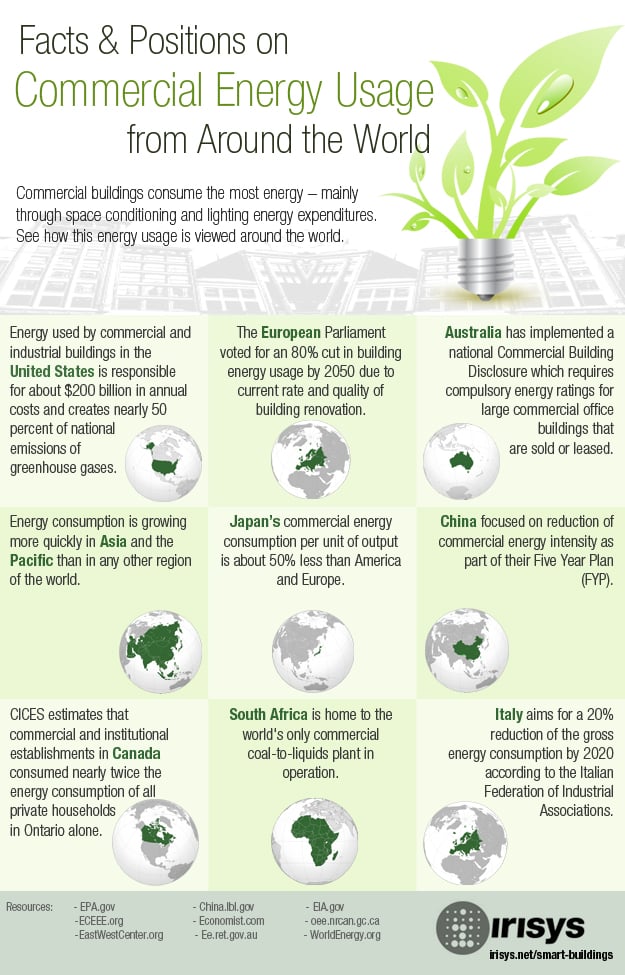Smart buildings integrate technology and the IoT to provide solutions to the age old issues of overspend and inefficiency in building construction and use. Within a smart building all the systems are connected, from air conditioning to security and lighting.
With the use of sensors, such as occupancy and people counters, actionable data about how the buildings is really used can be gathered to enable it to perform better. These are five of the key benefits of smart buildings:
1. Reduce energy consumption
Figures vary depending on systems and buildings, but you could reduce the energy consumption in a building by around 5% -35% with the use of smart technology. This translates into significant financial savings, as well as a much more efficient and effective approach to meeting green goals.
2. Improve building efficiency
Unobtrusive sensors provide anonymous data about how the building is being used. This enables smart systems to make adjustments about where heat and light are required, for example, and on the use of infrastructure such as air conditioning.
Sensors also help to identify overused and underused areas in the building, providing the opportunity to optimise space utilisation, which in turn can facilitate growth.
3. Predictive maintenance
Maintenance costs can be substantial when handled manually. However, without maintenance building equipment requires far more frequent replacement, which takes chunks out of budgets. Smart buildings enable simpler predictive maintenance.
Sensors can detect building performance and activate maintenance procedures before an alert is triggered. When you have a more insightful overview of how the building is operating – and used - it’s far easier to implement maintenance at the right time.
4. Increase productivity
Smart buildings have been specifically designed to deliver a more comfortable experience for their occupants. They can raise standards and ensure that health and safety considerations are being met, as well as ensure that this is implemented in a cost efficient way.
Smart buildings make people more productive by continually monitoring building use and adjust systems to ensure that occupants have the facilities that they need.
5. Better use of resources
The data generated by a smart building provides key insights that can be fed into planning and make use of resources more efficient. There removes the need to rely on guesswork or anecdotal data as this can be informed by real-time, genuine intelligence.

Want to learn more? Request a demo or speak with an expert today.
Share this
You May Also Like
These Related Posts

Commercial Energy Usage from Around the World

How Buildings Waste Energy

Using workplace people counting to create an occupant-centric building
Connect with us
Need more information? Ready to get started? We're here to help, get in touch.


